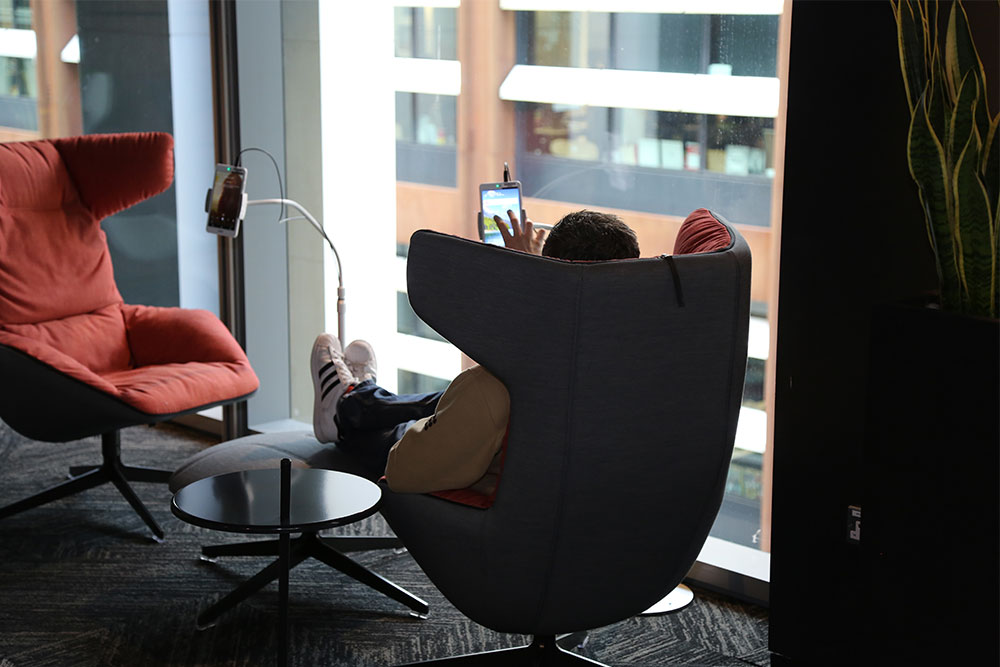What’s new for workplace wellbeing in 2019?

A fruit bowl on reception and an office yoga class are no longer enough for today’s workers who expect their employers to place their physical, mental and emotional wellbeing high on the office agenda.
Sally Lovett, founder of workplace wellbeing company Stretching the City, shares her top wellbeing trends coming to a workplace near you.
FINANCIAL WELLBEING
With more than ¼ of working millennials saying financial stress affects their job performance, making them feel physically ill and depressed – tackling their money worries makes business sense. Workshops and 1:1 advice on money management are becoming regular features of a wellbeing strategy for the likes of staff at PwC and Talbot Underwriting.
WELLNESS SPACES
Don’t fancy doing yoga in the canteen or boot camp in the boardroom? No problem. Companies such as Havas Media and Wunderman now boast dedicated wellness rooms, complete with comfy couches for rest and meditation and exercise equipment for lunchtime classes. Adobe’s London office have taken their employee’s exercise to great heights, creating a 150m skyscraper running track that sits 16 storeys above the city.
SERENITY THROUGH SOUND HEALING
For those seeking a more immersive meditation experience, Sound Healing uses gongs and crystal singing bowls to relax the mind and body, and soothe the nervous system. Described as a ‘short cut to a calm mind’, Sound Healing has been a hit with staff at Carat and WeWork, who have both recently hosted gong baths for their staff.
DISCONNECTING TO RECONNECT
2019 sees us continue to take back control of our tech use, enhanced by Apple’s recent ‘screen time’ feature providing a stark reminder of our daily dependency. Three mobile and Portman Estate are amongst companies who’ve hosted workshops to help employees manage their digital distractions, whilst Lidl recently banned work emails after 6pm. In a bid to encourage employees to sleep more soundly and get their phone out their bedrooms, analogue alarm clocks have been distributed at Get Living London and Tata Steel.
MAKING MENTAL HEALTH FIRST AID MANDATORY
In 2018, business leaders and unions wrote an open letter to Theresa May calling for mental health to be given the same weight as physical first aid in workplace legislation. The bill was recently debated and those who attended unanimously voted for the motion. A victory for the campaign – But there’s still a long road of lobbying ahead. Meanwhile, more than 300,000 people in England have been trained in mental health first aid. Thames Water, which has more than 350 employees across its organisation now wearing green lanyards identifying themselves as mental health first aiders, said it had seen a 75% reduction in work-related stress, anxiety and depression over the last five years.









